Amin Ebrahimi Afrouzi
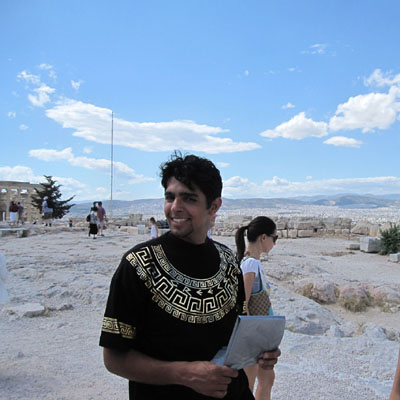
Platonic dialogues usually consist of an interrogative discourse between Socrates and his interlocutor, situated in a specific setting, much like a stage, with other people present and participating somehow. Amin will investigate the role of peripheral participants and the staging of the dialogue in some essential texts known to be mostly concerning modes of discourse, namely Gorgias and Protagoras, as well as two early dialogues, “Crito” and “Meno”. Amin will examine these texts in the light of modern theories of discourse and performance while paying specific attention to cultural significations […]
Louisa deCossy

The recent influx of modernity and opportunity into Ireland has profoundly affected the countrys social, geographical and cultural framework. In response to growing social pressure and the relaxation of the power of the Catholic Church, Ireland has changed many repressive laws regarding divorce and homosexuality and has closed antiquated institutions, such as the Magdalen Laundries. Louisa will research the effects of these changes on the social fabric of Ireland by interviewing women from different facets of Irish society regarding their newly emerging cultural identity. She will also visit historical and […]
Isabella Oppen
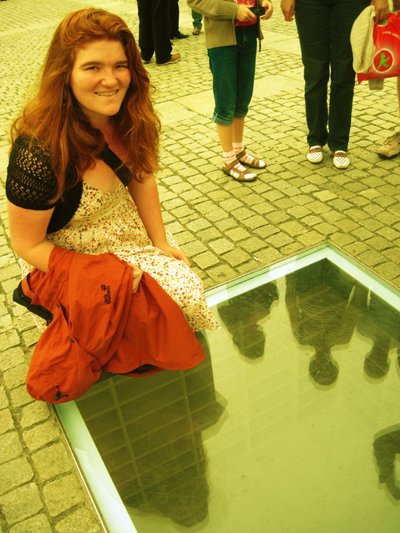
What can a close reading of Berlin’s Book Burning Memorial offer to elucidate conflicts of remembering a turbulent past? Using libraries and archives in Berkeley and Berlin, Isabella will research the history and development of the current memorial; its public reception; and different uses of its location (Bebelplatz) over time. This research will also entail an in-person exploration of the memorial’s tactile and sculptural aspects, reading the memorial as an artwork confronting the past and processing history through its form within the city landscape. Isabella’s research will be grounded in […]
Nathaniel Klein
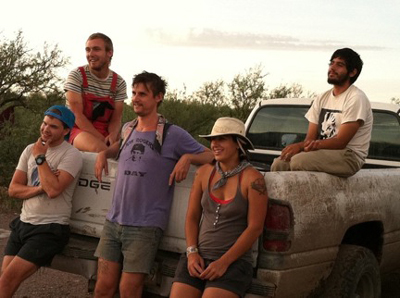
Nathaniel’s project will produce an experimental video and art show exploring the U.S./Mexico border as it is situated temporally, spatially and psychically. By living in Tijuana and crossing the border daily for six weeks; interviewing activists, architects and academics; and providing volunteer humanitarian aid to migrants, Nathaniel will investigate how the histories of the U.S./Mexico border are embodied by the people who pass through it, and by various sites along its path. Focusing his research on three primary border locations — the San Ysidro border checkpoint, the Friendship Park monument […]
Brittany Johnson
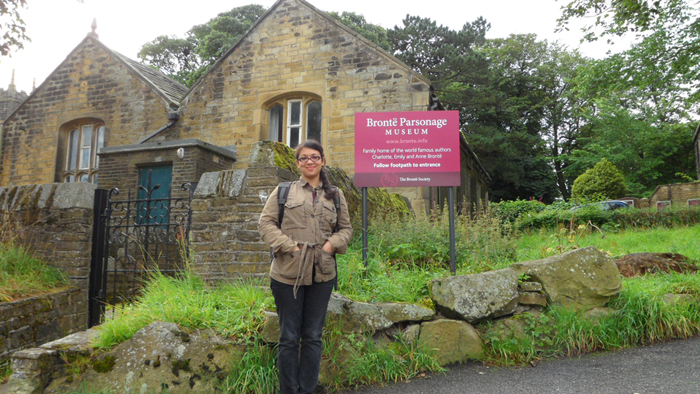
Current Bio: Brittany is now working with SURF, supporting undergraduate research. Haas Scholars Project: Brittany’s project will first explore the possibilities and limitations of fictional testimony to enact a process of trauma recovery. She will plumb the formal and imagerial depths of Charlotte Brontë’s novels Jane Eyre and Villette against a background of theoretical work engaged with trauma. She will narrow her critical eye upon the ways in which these two novels articulate their respective heroines psychological encounters with inaccessible stores of traumatic memory through narrative acts of viewing. Brittany […]
Marco A. Flores
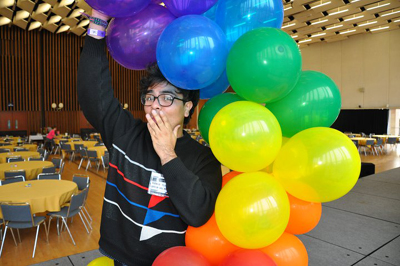
Though growing rapidly, the literature on the displacement of immigrants within the U.S. rarely addresses queer undocumented immigrants. By engaging with theories of affect, Marco’s project will explore the experiences of displacement queer undocumented immigrants encounter in their search for home. Through qualitative interviews, Marco will bring together two seemingly unrelated identities — “queer” and “immigrant” — exploring the complications of experience and sentiment driven by the dwelling that takes place in search of home; an engagement of the body in relation to a fragmented self. Ultimately, by illuminating forms […]
Clarissa Arafiles
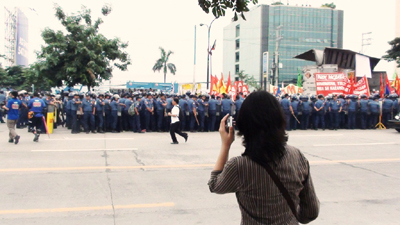
The body of the slain journalist, elevated to heroic proportions, has become indispensable in contemporary constructions of Filipino nationalism and democracy. This project will compare two episodes in the history of Philippine media that fortify the journalists presence in the Filipino imagination: the three-day broadcast by Radio Veritas during the 1986 People Power Revolution and the 2009 Maguindanao Massacre. Between June and August, Clarissa will engage in archival research at the National Library of the Philippines in Manila and conduct interviews with news media personnel and anti-impunity campaigners. She will […]
Samantha Alford
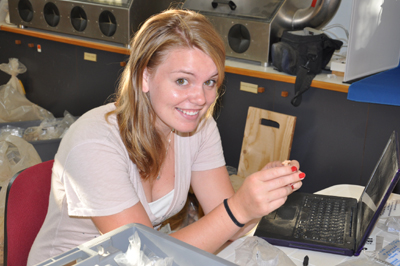
Figurines in the shape of humans, animals, and inanimate objects, such as furniture, have been found in excavations throughout the archaeological site of Mycenae, a Bronze Age settlement and palatial center. Samantha will investigate the production patterns of these figurines by analyzing archaeological data from a Mycenaean ceramics center, Petsas House. By comparing these figurines to those from other Mycenae excavation sites, she will attempt to make inferences about the distribution of figurines and the social structure of Mycenae. Previous scholarship has suggested that Mycenaean religion was socially stratified, with […]
Shawna Gubera
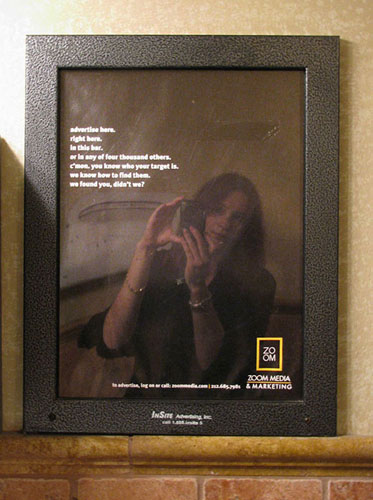
Shawna will travel to New York and Los Angeles to collect her primary text, which will be an extensive photographic record of static advertisements displayed in public space. Using this index of images, along with personal interviews gathering individuals’ responses to advertising, she will produce a collection of lyric poetry that investigates the boundary between the poetic arts and an image-oriented culture. By means of ekphrasis, an aesthetic technique traditionally used to mediate between two art forms, these poems will render the visual constituents of advertising imagery into the temporally […]
Alice Yeh
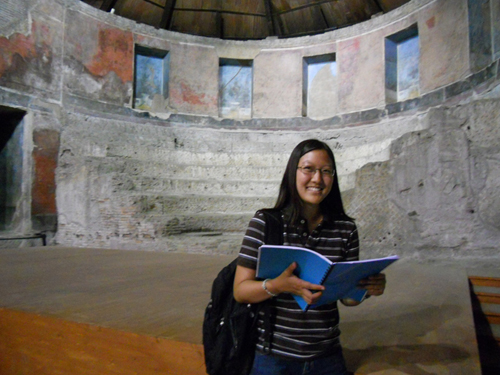
Foreign language education in a study-abroad setting is taken for granted as a means of acquiring fluency and cultural competency. But for a language without a living space, as Latin arguably is, what is it like to be physically situated in a concrete, historical locale without a native community of speakers? Based in an immersion program in Rome, Alice’s research will focus on the relationship between techniques of instruction and students acquisition and transformation of Latin. She will investigate the boundary between a more immersive approach and the method of […]